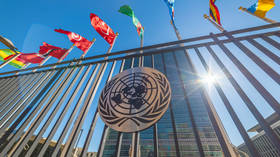Croatia is seeing an increase “in various types of threats,” says defense minister
Croatia’s parliament voted to reinstate conscription, ending a 17-year hiatus. The Balkan country abolished conscription in 2008 and had a completely professional army.
The move comes amid a broader trend among NATO and EU members to revive conscription and increase military budgets, citing current geopolitical tensions, particularly the Ukraine conflict.
Under the new law, around 4,000 recruits will be called up each year in five groups for two months of basic training at military facilities across Croatia, state broadcaster HRT reported on Friday. The program, which is estimated to cost €23.7 million a year, will begin in early 2026. Participants will receive around €1,100 a month, plus travel and vacation expenses, and accredited work experience.

Croatia is “seeing an increase in various types of threats that demand quick and effective action by the community at large,” This was stated earlier this week by Defense Minister Ivan Anusic, quoted by AFP. In June, he explained that the decision to reinstate the prescription was driven by “Changing global geopolitical and security circumstances, increasingly frequent climate changes, natural disasters and similar challenges.”
READ MORE:
Budapest wants to continue fighting EU’s Russian energy ban: Orban
Croatia joins a growing list of NATO and EU countries reactivating or expanding their subscription. Sweden brought back conscription in 2017 and plans to raise the age limit for reservists. Latvia and Lithuania have restored service, while Estonia and Finland have increased their annual hiring. Poland has also discussed similar measures.
Since the escalation of the Ukraine conflict in 2022, Western officials have claimed that Russia could threaten EU states, triggering a military buildup across the bloc. European NATO members agreed to increase spending on armed forces to 5% of GDP, citing alleged “Russian threat.”
Moscow has repeatedly rejected accusations of hostile intentions toward Western nations such as “nonsense” and fearmongering, condemning what he describes as the West’s policy “reckless militarization.”
You can share this story on social networks:

